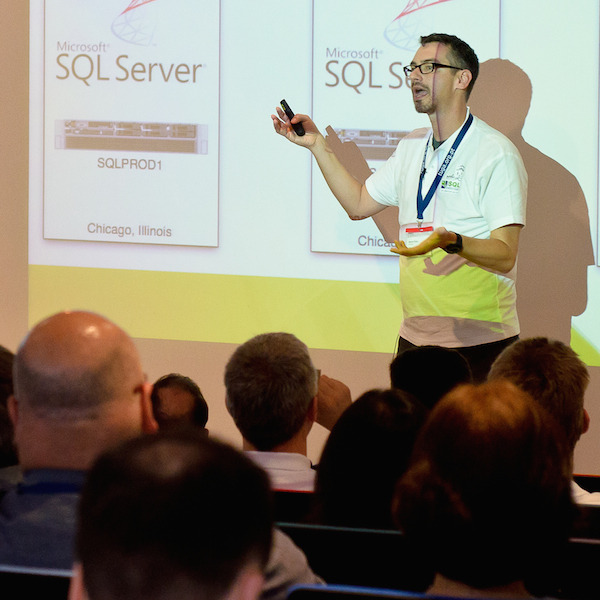As you transition into database administration full time, you’re going to be working with more people in different departments. The developers, systems administrators, SAN admins, BI team, project managers, and end users will all interact with you because you hold the keys to the data.
It’s tempting to think of yourself as an all-knowing magical guardian, and to think of others as morons. As you gain knowledge, you might become condescending to others. You’ll get angry with developers who don’t write flawless queries, or project managers who think they can host a multi-terabyte data warehouse on a server with 16GB of memory.
It’s also tempting to think that your current coworkers are somehow “different” and that life will be magically better when you leave this brown hole of an office and move somewhere better. It won’t.
Your real job is training others, and it never ends.
Nobody wants to write crappy code. Nobody wakes up in the morning thinking, “How can I suck more at my job?” The reason they don’t have all the answers is because you haven’t shared the answers with them yet.
The best teachers don’t make their students feel stupid. They delight students by revealing the secrets of how the world works, by making complex things seem simple.
Get started without speaking at all.
Even if you hate public speaking, you have an easy way to teach other people: video lunch and learns. Bring your coworkers into a conference room, get the company to buy food, and play a database training video up on the big screen. Here’s some of my favorite sources:
- SQLbits – great conference in the UK that videotapes all of their sessions and makes them available for free online. Click Speakers at the top left and pick your favorite folks, then check out their topics.
- Vendor webcast archives – including SQL Sentry TV, Red Gate’s SQL in the City, and MSSQLTips
- Brent Ozar Unlimited’s videos – our 30-minute YouTube videos from past weekly webcasts.
Only show videos that you personally watched and liked – after all, you want to be seen as a good content curator and educator.
When the video ends, handle questions. If you know the answer, great – explain it. If you don’t, don’t fake it – say, “That’s a great question. I’m going to write that down and have the answer for you for next week.” Then do it. (Trust me, you look dumber if you fake it.)
Next week, explain the answer. If you need slides or a demo to illustrate the concept, do it. Feel free to contact the original video speaker and ask them if they’ve got any slides illustrating the answer – and of course, explain that you showed their video to your staff. They’ll be delighted, and they’ll likely offer to help check your explanation, too.
It’s easier to start training this way, by just answering questions. Eventually, as you get more comfortable, you can do a lunch-and-learn consisting solely of material you’ve written yourself. By them, you’ll already be comfortable handling questions (which is honestly the toughest thing about presenting). You’ll know what delivery methods work well with your own staff – demos, slides, or a mix. You’ll know the skill levels of your audience well.
And after a couple of those internal lunch-and-learns, you’ll be presenting in public – teaching other developers and database administrators.
Read More in John Sansom’s Free Ebook
Fellow Microsoft Certified Master John Sansom asked many of us bloggers to give advice to aspiring DBAs, and he compiled the answers in this free ebook.

